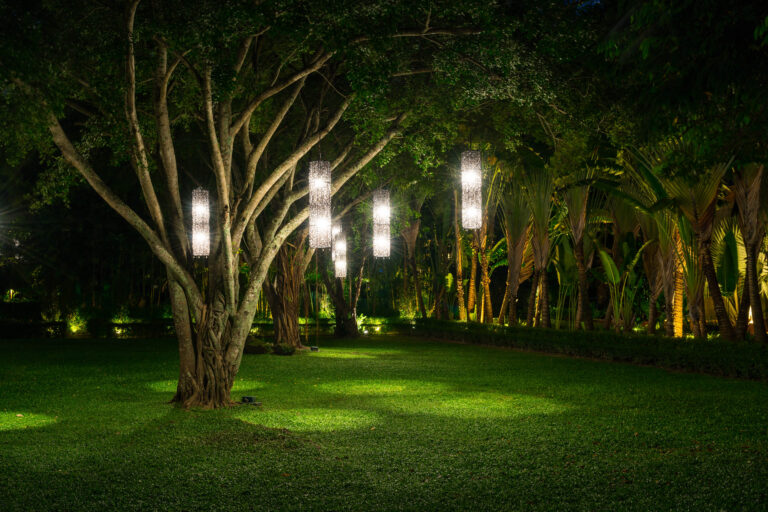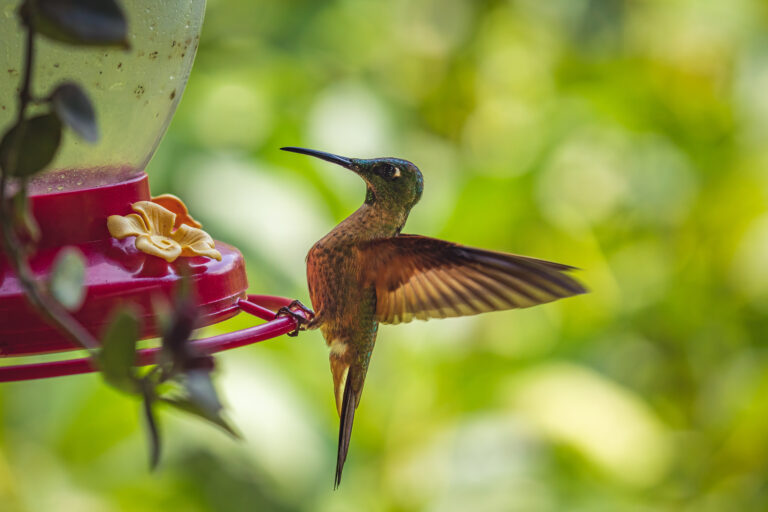What is the Meaning of Garden in One Word? Oasis
A garden is a space filled with plants and beauty. It offers a place for relaxation and joy.
But what if you had to describe it in just one word? The meaning of “garden” can spark many thoughts. It represents life, growth, and nature. Gardens are not just about flowers and vegetables; they can symbolize peace, creativity, and connection.
Understanding the essence of a garden in one word opens up a world of feelings and ideas. This simple concept can touch on cultures, memories, and personal experiences. In this post, we will explore the profound significance of gardens and discover what one word captures their true essence. Join us on this journey to find that perfect word.
Garden As An Oasis
A garden serves as an oasis, a peaceful escape from daily life. It offers comfort and beauty. In a busy world, gardens provide a place to relax and enjoy nature. They invite us to pause and breathe. An oasis is a refreshing spot, often surrounded by dry land. Similarly, a garden creates a vibrant space amidst our hectic routines.
Symbolism Of Oasis
An oasis symbolizes hope and renewal. It represents life in harsh conditions. Just like an oasis, a garden nurtures growth and tranquility. It becomes a sanctuary for many. Flowers bloom and trees grow, bringing joy. This lush environment contrasts with the chaos outside. Each plant tells a story of resilience. An oasis encourages us to find peace and harmony.
Garden Features Reflecting An Oasis
Several features make a garden feel like an oasis. Water elements are key. A small pond or fountain adds serenity. The sound of water calms the mind. Lush greenery surrounds us, creating a cozy atmosphere. Different plants provide shade and color. Flowers attract butterflies and birds, enhancing the experience. Pathways guide us through this natural retreat. Each element works together to create a peaceful haven.

Credit: www.amazon.com
Historical Significance
The meaning of a garden goes beyond plants and flowers. It has deep roots in history. Gardens symbolize life, beauty, and culture. They connect us to the past. Let’s explore their significance in ancient times and cultural contexts.
Gardens In Ancient Civilizations
Ancient civilizations cherished gardens. They used them for food and beauty. In Egypt, gardens represented paradise. They featured fruit trees and sacred plants. Mesopotamian gardens were often elaborate. They showcased the wealth of the owners.
In Greece, gardens were a space for philosophy. Thinkers gathered there to discuss ideas. Romans took gardening to another level. They built stunning villas with lush gardens. These spaces reflected their love for nature.
Oasis In Cultural Contexts
Oases are vital in desert cultures. They provide water and life in harsh conditions. Many cultures see oases as sacred places. They symbolize hope and survival. People gather there for trade and community.
In literature, gardens and oases often represent peace. They serve as retreats from the outside world. These spaces encourage reflection and relaxation. They remind us of nature’s beauty and importance.
Emotional Respite
Gardens offer a special kind of emotional respite. They provide a peaceful escape from daily stress. The beauty of nature helps calm the mind. Spending time in a garden can bring joy and comfort.
Stress Relief Through Green Spaces
Being around green spaces helps reduce stress. Nature has a soothing effect on our emotions. Here are some ways gardens relieve stress:
- Fresh air boosts mood.
- Bright colors uplift spirits.
- Sounds of nature relax the mind.
- Gardening activities keep you focused.
Studies show that just a few minutes in a garden can lower anxiety levels. People feel more at peace surrounded by plants and flowers.
Psychological Benefits Of Gardens
Gardens provide many psychological benefits. They can improve mental health in various ways:
| Benefit | Description |
|---|---|
| Increased Happiness | Nature exposure boosts happiness levels. |
| Enhanced Creativity | Green spaces spark creative thinking. |
| Improved Focus | Nature helps sharpen concentration. |
| Social Connection | Gardening can be a group activity. |
Gardens create a sense of belonging. They invite people to come together. Community gardens foster friendships and support.
Overall, gardens are more than just plants. They are places of healing. They nourish the mind and spirit.

Credit: www.amazon.com
Biodiversity Hotspots
Gardens serve as biodiversity hotspots. They bring together many plant and animal species. These spaces provide vital habitats and resources. A garden can be a small paradise for nature. Each garden contributes to a larger ecosystem.
Flora And Fauna Diversity
Flora refers to plant life. Fauna represents animal life. Gardens feature a wide range of flora. Flowers, shrubs, and trees create a colorful display. Each plant supports various animal species. Birds, insects, and small mammals thrive in gardens. This diversity enhances the beauty of the space.
Different plants attract different animals. Native plants often draw local wildlife. They provide food and shelter. Exotic plants can add interest. Yet, they may not support local fauna. Balancing both is key for a healthy garden.
Ecosystem Services Of Garden Spaces
Gardens offer essential ecosystem services. They improve air quality and support pollination. Plants absorb carbon dioxide and release oxygen. This helps fight climate change.
Garden spaces manage water effectively. They reduce runoff and prevent erosion. Soil health improves with diverse plants. Healthy soil leads to better water retention. Gardens also provide spaces for recreation. They promote mental well-being and community bonding.
Design Principles
Design principles guide the creation of a garden. They help make a space beautiful and functional. A well-designed garden reflects personal style. It creates a sanctuary. Think about what you want from your garden.
Creating A Personal Oasis
Your garden can be a personal oasis. It should feel unique and comforting. Start by defining the purpose of your garden. Do you want a place to relax? Or maybe a space to entertain?
Here are some steps to create your oasis:
- Choose a theme. Consider styles like modern, rustic, or tropical.
- Select plants that match your theme. Use colors and textures that appeal to you.
- Incorporate seating areas. They invite relaxation and conversation.
- Add features like water fountains or birdbaths. They enhance tranquility.
Elements Of Serenity In Garden Design
Serenity is key in garden design. Certain elements create a peaceful atmosphere. Focus on these aspects for a calming garden:
| Element | Description |
|---|---|
| Plants | Choose soft, soothing colors. Use a mix of textures. |
| Pathways | Curved paths create flow. They invite exploration. |
| Lighting | Soft lighting sets the mood. Use lanterns or string lights. |
| Seating | Comfortable seating allows for relaxation. Consider benches or hammocks. |
These elements work together. They create a peaceful haven. A garden designed with serenity in mind becomes an escape.

Credit: no.pinterest.com
Sustainability And Conservation
Sustainability in gardening means protecting our planet. It focuses on using resources wisely. Conservation helps maintain natural habitats. Together, they support a healthy environment.
Gardens can play a big role in sustainability. They provide food, shelter, and beauty. Using eco-friendly methods helps us save resources. It promotes a better future for all living things.
Water Conservation Techniques
Water is precious. Here are some techniques to save it:
- Drip irrigation: Delivers water directly to plant roots.
- Rainwater harvesting: Collects rainwater for garden use.
- Mulching: Reduces evaporation from the soil.
- Native plants: Require less water than non-native ones.
Promoting Sustainable Practices
Using sustainable practices helps gardens thrive. Consider these methods:
- Composting: Turns kitchen scraps into nutrient-rich soil.
- Crop rotation: Helps maintain soil health and fertility.
- Organic pest control: Reduces harmful chemicals in the garden.
- Cover crops: Prevent soil erosion and improve soil quality.
Gardens In Urban Environments
Urban gardens are essential in cities. They provide beauty and fresh air. These green spaces help people connect with nature. In crowded areas, gardens offer a peaceful escape. They promote mental health and well-being.
Green Spaces In City Planning
City planners recognize the importance of green spaces. Urban gardens improve the quality of life. They help reduce pollution and heat. Here are some key benefits:
- Enhanced air quality: Plants absorb carbon dioxide and release oxygen.
- Community engagement: Gardens bring people together.
- Wildlife habitats: They create homes for birds and insects.
- Food security: Urban gardens can grow fresh produce.
Many cities now include gardens in their designs. They plan parks, rooftops, and community gardens. This helps create a balanced urban ecosystem.
Challenges And Solutions For Urban Gardens
Urban gardens face many challenges. Limited space is a common issue. Other problems include:
- Soil quality: Urban soil may be contaminated.
- Water access: Gardens need a reliable water source.
- Funding: Financial support is often hard to find.
Solutions exist for these challenges. Here are some effective strategies:
| Challenge | Solution |
|---|---|
| Soil Quality | Use raised beds with clean soil. |
| Water Access | Implement rainwater harvesting systems. |
| Funding | Seek grants and community support. |
Urban gardens can thrive with the right support. Communities can work together to overcome obstacles. They create vibrant green spaces that benefit everyone.
Community And Social Value
Gardens hold great community and social value. They bring people together. They create bonds and friendships. Gardens offer a space for sharing and learning. These green spaces enrich our lives in many ways.
Gardens As Community Hubs
Gardens serve as vital community hubs. They provide a place for people to meet. Residents can gather for events and activities.
- Community events foster connections.
- Shared gardening projects encourage teamwork.
- Local festivals celebrate culture and diversity.
Through these gatherings, gardens build a sense of belonging. Neighbors can share stories and experiences. They can also help each other in times of need.
Educational Roles Of Public Gardens
Public gardens play important educational roles. They teach people about nature and sustainability.
- Workshops offer hands-on learning experiences.
- Children learn about plants and wildlife.
- Guided tours share knowledge about local ecosystems.
Gardens provide opportunities for schools and families. They inspire future generations to care for the environment.
Therapeutic Gardens
Therapeutic gardens offer a calming escape. They promote healing and well-being. These gardens connect people to nature. They provide a peaceful space for relaxation.
Healing Gardens In Healthcare
Healing gardens play a crucial role in healthcare settings. They help reduce stress and anxiety. Patients feel more at ease in these green spaces. Studies show that nature speeds up recovery. Access to these gardens improves overall health.
Designing For Wellness
Designing therapeutic gardens focuses on comfort and accessibility. Paths should be easy to navigate. Seating areas must be inviting and comfortable. Plants should be selected for their soothing colors and scents. Creating a peaceful atmosphere is key. Elements like water features add a calming sound. These design choices enhance the healing experience.
Future Of Gardens
The future of gardens holds exciting possibilities. Urban spaces will transform with more greenery. Communities will focus on sustainability and biodiversity. Innovations will shape how we grow and care for plants.
Innovations In Horticulture
New technologies are changing gardening. Vertical gardens use less space and create beauty. Hydroponics allows plants to grow without soil. These methods use less water and grow food faster.
Smart gardening tools help us monitor plants. Sensors can track soil moisture and plant health. Apps guide us in planting and caring for gardens. Technology makes gardening easier and more efficient.
Adapting To Climate Change
Climate change affects how we garden. We need plants that thrive in changing weather. Drought-resistant plants save water and still look great.
Gardens can help reduce carbon footprints. Green spaces improve air quality and support wildlife. Planting native species strengthens local ecosystems.
Community gardens foster connection. They bring people together and promote healthy eating. Gardening is a way to combat climate change and build resilience.
Frequently Asked Questions
What Is The Definition Of A Garden?
A garden is a planned space, often outdoors, for growing plants, flowers, and vegetables. It serves aesthetic, recreational, and functional purposes. Gardens enhance landscapes and provide habitat for wildlife. They also promote relaxation and well-being for those who tend them and visit.
Why Do People Create Gardens?
People create gardens for various reasons, including beauty, food production, and relaxation. A garden can provide fresh produce and herbs. It also serves as a personal retreat, enhancing mental health. Additionally, gardening can be a rewarding hobby that fosters creativity and connection with nature.
What Are The Different Types Of Gardens?
There are many types of gardens, including vegetable, flower, herb, and ornamental gardens. Each type serves unique purposes and appeals to different interests. For example, vegetable gardens focus on food production, while flower gardens emphasize aesthetics and fragrance. Specialized gardens, like rock or water gardens, add variety.
How Does Gardening Benefit Mental Health?
Gardening significantly benefits mental health by reducing stress and anxiety. Engaging with plants and nature promotes relaxation and mindfulness. Studies show that gardening can improve mood and boost self-esteem. The physical activity involved also releases endorphins, enhancing overall well-being and happiness.
Conclusion
A garden means many things. It is a space for beauty. It brings peace and joy. People grow food and flowers there. Gardens connect us to nature. They offer a break from busy life. Understanding this simple meaning can inspire us.
Everyone can enjoy a garden, big or small. Embrace the idea of a garden in your life. It enriches our world in many ways. Take a moment to appreciate its beauty. A garden is truly a special place.
- Polycarbonate Panels For Greenhouse Durable Options For Enhanced Growth 2026 - February 27, 2026
- 10 Best Organic Fertilizers for Winter Crops: The Complete Guide - February 23, 2026
- 10 Best Overwinter Fertilizers for Vegetable Garden in 2026 - February 23, 2026






